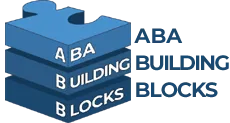Introduction to RBT Certification
Are you looking for a career that bridges the gap between understanding complex behavior patterns and impacting lasting change in individual lives? Have you ever considered becoming a Registered Behavior Technician (RBT). Credentialed by the Behavior Analyst Certification Board, RBTs are in the front line of Applied Behavior Analysis (ABA), playing the critical role of implementing behavior therapy plans under the supervision of certified Behavior Analysts. But how does one acquire this recognized credential known as the RBT certification?
Let’s take a brief walk-in introduction into RBTs.
The RBT certification is a globally-recognized paraprofessional certification that represents proven understanding and skills of the principles and practice of Applied Behavior Analysis. RBTs primarily work with individuals with autism or developmental delay, employing therapeutic techniques based on ABA principles to improve and sustain their clients’ behavior, social interactions, and overall quality of life. In the US, an increasing number of providers require behavior therapists to have RBT certification, raising its importance.
While the role of an RBT might sound challenging, acquiring the RBT certification might feel even more daunting. This is not an unanticipated concern. The process involves completing a 40-hour training program, clearing a competency assessment, and maintaining ethical standards, all under the guidelines set out by the Behavior Analyst Certification Board (BACB). But is it all as intimidating as it sounds?
Quick Overview of RBT Certification Requirements:
- Age: Must be 18 years or older.
- Education: High school degree or equivalent.
- Background: Clear background check.
- Training: Completion of a 40-hour training course within 180 days.
- Assessment: Effective completion of a competency assessment.
This list is a simplified version of what one needs for RBT certification. Each element in this list carries in-depth specifications and guidelines, which we’ll explore in this guide.
Here’s an infographic to give you an overview of the RBT certification journey indispensable to becoming a competent and effective RBT:

Indeed, achieving RBT certification might sound like a lot of work. But remember, that’s precisely why it increases your value as a behavior analyst. The credential represents your commitment to best practices in understanding and managing behavior – a competency highly esteemed in the human services field, no less in handling individuals with special needs. So let’s team up and dive deeper into what it takes to become a certified RBT.
Understanding the RBT Certification Requirements
Becoming a Registered Behavior Technician (RBT) is a rewarding and fulfilling path, but it does require meeting certain criteria to acquire the certification. To help you navigate this process, we have outlined the key requirements you need to fulfill.
Age and Education Standards for RBT Certification
The first requirement is age and education. You must be at least 18 years old and have a high school diploma or equivalent. These standards ensure that those seeking RBT certification are mature enough to handle the responsibilities that come with the role and have the necessary foundational education.
The 40-Hour Training Requirement
The next step in your RBT certification journey is the completion of a 40-hour training course. This course, which can be conducted live or via platforms like Zoom, covers a comprehensive curriculum that meets the Behavior Analysis Certification Board (BACB) RBT requirements. The training must be completed within 180 days and in no less than a 5-day period. This intensive training prepares prospective RBTs with the necessary skills and knowledge to excel in the field of Applied Behavior Analysis.
At ABA Building Blocks, we’ve spent years developing a curriculum that not only meets the BACB RBT requirements, but also equips you with practical skills.
The Competency Assessment
Once you’ve completed your training, you need to pass the RBT Competency Assessment. This assessment, conducted by a Board Certified Behavior Analyst (BCBA), ensures that you have demonstrated competency in all the areas outlined in the task list. The assessment covers various skills, including data entry, conducting preference assessments, implementing crisis procedures, and demonstrating antecedent interventions, among others. It’s essential that you prepare adequately for this assessment to demonstrate your understanding and mastery of the skills required.
The Background Check
Finally, you must pass a background check. This step is crucial as it ensures that RBTs working with vulnerable populations, such as children and adults with special needs, are trusted and responsible individuals.
In summary, the RBT certification process is a comprehensive one that ensures individuals are well-prepared and competent to deliver high-quality Applied Behavior Analysis services. At ABA Building Blocks, we’re committed to supporting you every step of the way in your RBT certification journey.
How ABA Building Blocks Can Support Your RBT Certification Journey
At ABA Building Blocks, we understand the importance of RBT certification and the profound impact it can have on your professional development and your ability to improve the lives of individuals with autism and other disabilities. That’s why we offer robust support to help you navigate the certification process and succeed in your career as a Registered Behavior Technician.
Virtual Trainings for RBT Certification
As part of our commitment to fostering your growth and enhancing your skills, we offer live virtual trainings tailored to meet your specific needs. Our RBT training is meticulously designed to equip Behavior Therapists with the latest techniques and strategies essential for effective ABA therapy delivery.
This comprehensive 40-hour course, which can be conducted live or live via Zoom, adheres to the BACB’s RBT requirements and covers critical areas such as assessment, behavior reduction, documentation, reporting, measurement, and professional conduct.
Our emphasis on interactive and live training reinforces the understanding and practical application of the principles and procedures of behavior analysis, far beyond what is attainable through video courses.
End-to-End Business Support for RBTs
At ABA Building Blocks, we believe in providing holistic support. Beyond helping you achieve your RBT certification, we also offer end-to-end business support to help you navigate the complexities of working in the ABA therapy field.
Whether you’re grappling with the intricacies of billing procedures or need assistance with clinical development, we’ve got you covered. Our billing support streamlines the billing process, allowing you to focus on delivering quality therapy.
Our clinical development services focus on enhancing your clinical infrastructure, ensuring robust, audit-compliant clinical documentation, and helping you establish and grow a premier clinical practice.
The Advantage of ABA Building Blocks’ Expertise in ABA and Special Needs Practices
At ABA Building Blocks, we leverage our extensive expertise in ABA and special needs practices to offer you unparalleled support. Our team is passionate about what we do and dedicated to supporting companies providing vital services to individuals with autism.
Our comprehensive ABA therapy support services are designed to help you meet your professional goals while delivering exceptional therapy services. Whether you’re striving to achieve your RBT certification or are already a certified RBT looking for ongoing support, we’re here to help you every step of the way.
In the end, our goal at ABA Building Blocks is not just to help you become a certified RBT, but to ensure that you are well-equipped to make a meaningful difference in the lives of the individuals and families you serve.
The Process of Getting RBT Certified
The journey to becoming a Registered Behavior Technician (RBT) involves a series of steps, each designed to prepare you to provide effective and ethical ABA services. At ABA Building Blocks, we help simplify this process with our comprehensive resources and expert guidance from our team, led by Kim Finger, Ph.D.
How to Complete the 40-Hour Training
The first step in the RBT certification process is to complete a 40-hour training course. This training can be done online or in-person, over a maximum of 180 days. It covers a range of critical topics, from measurement and assessment to professional conduct and scope of practice.
However, not all 40-hour training courses are created equal. Some are simply video courses that don’t adequately prepare you for the practical challenges of an RBT role. At ABA Building Blocks, we’ve developed a robust RBT training curriculum that meets the BACB requirements and provides hands-on, effective training. Whether you choose to implement the training yourself or trust one of our skilled BCBAs to train your new hires, our goal is to ensure that those receiving ABA services are getting their therapy from highly trained therapists.
How to Pass the Competency Assessment
After completing your 40-hour training, the next step is to pass the RBT Competency Assessment. This involves demonstrating understanding and competency in each of the areas listed on the BACB’s RBT task list. The assessment includes 20 items and must be completed by a BCBA.
When you’re ready for this assessment, make sure you’re well-versed in key terms such as ‘continuous measurement’, ‘frequency’, ‘duration’, and ‘discrimination training’, among others. You must also demonstrate the ability to perform tasks like entering data and updating graphs, teaching skills in different settings, conducting preference assessments, and implementing crisis procedures, just to name a few.
If you’re looking for a BCBA to conduct your competency assessment, you can use the search function on the BACB website to find a certified BCBA supervisor.
How to Undergo the Background Check
Before you can apply for RBT certification, you must pass a background check. This process varies by state and country, but typically involves providing certain identification documents, fingerprints, and personal information to a relevant law enforcement or government agency.
How to Apply for RBT Certification
Finally, once you’ve successfully completed your 40-hour training, passed your competency assessment, and cleared your background check, you can apply for RBT certification. You’ll need to submit your application and all required documentation to the BACB, along with the relevant fee.
RBT certification is not a one-time process. You’ll need to renew your certification annually and complete ongoing training and assessment requirements to maintain your certification status.
The path to becoming a certified RBT may seem daunting, but it’s a worthwhile investment in your career. We at ABA Building Blocks are here to support you every step of the way, providing the training, resources, and guidance you need to succeed.
Conclusion: The Value and Impact of RBT Certification
The journey towards obtaining your RBT certification may seem challenging, but it comes with a great reward. An RBT certification holds immense value in the field of Applied Behavior Analysis (ABA). It is a badge of credibility that gives you a competitive edge in the job market and opens up opportunities for career advancement and growth.
As an RBT, you play a crucial role in delivering behavior-analytic services under the supervision of an RBT Supervisor or an RBT Requirements Coordinator. Your expertise aids in ensuring the best care and intervention programs for individuals with behavioral challenges. This, in turn, leads to improved outcomes and a better quality of life for the individuals you serve.
Moreover, the RBT Ethics Code (2.0) ensures that you adhere to the highest standards of ethical behavior, which further enhances your reputation and trustworthiness in the field.
RBT certification also has financial benefits. A certified RBT generally earns a higher salary compared to their non-certified counterparts. Hence, investing in RBT certification is not just about professional growth, but also about financial growth.
Lastly, becoming an RBT is a stepping stone towards a fulfilling career in the ABA therapy industry. As an RBT, you can make a significant impact on the lives of individuals with behavioral challenges. It’s about more than just a job – it’s about making a difference.
At ABA Building Blocks, we understand the value and impact of RBT certification. We are committed to supporting aspiring RBTs throughout their certification journey with our comprehensive RBT training and resources. We believe in the transformative power of education and training, and we are dedicated to ensuring that our trainees are well-prepared for their roles as RBTs.
So, are you ready to take the next step in your ABA career? Contact us today and let’s start your RBT certification journey together.

For more resources and information about our services, please visit our Resources page. If you have any questions, reach out to us through our Contact Us page. We look forward to helping you achieve your RBT certification goals!
Maintaining Your RBT Certification
Once you’ve earned your RBT certification, it’s important to remember that the journey doesn’t end there. Maintaining your RBT certification is a continuous process, which requires commitment to ongoing education, adherence to ethical standards, and regular renewal of your certification.
The Importance of Continuing Education
Continuing education is a crucial aspect of maintaining your RBT certification. It’s designed to ensure that RBTs are keeping up with the latest developments in the field of Applied Behavior Analysis and continuing to hone their skills.
Our team at ABA Building Blocks understands the importance of ongoing learning and we provide multiple opportunities for RBTs to continue their education. This commitment to professional development not only maintains your certification but also improves the quality of services provided to clients.
The RBT Ethics Code (2.0)
Adherence to ethical standards is another vital aspect of maintaining your RBT certification. The BACB has outlined these standards in the RBT Ethics Code (2.0). As an RBT, it’s your responsibility to uphold these standards in your professional practice. The ethics code provides a clear framework for professional conduct, ensuring that RBTs perform their duties with integrity and respect for their clients’ rights.
At ABA Building Blocks, we emphasize the importance of ethical practice in our training and consultation services. We strive to ensure that all our associated RBTs are well-informed about the ethical standards they are expected to uphold.
How to Renew Your RBT Certification
Finally, renewing your RBT certification is an important part of maintaining your status as a certified RBT. This process involves demonstrating continued competency in your role by passing a renewal competency assessment and submitting a renewal application to the BACB.
We know that this process can seem challenging, but we’re here to help. Our team at ABA Building Blocks is equipped to provide guidance and support throughout the renewal process, helping you to maintain your certification and continue your valuable work in the field of ABA therapy.
Maintaining your RBT certification is not just about fulfilling requirements. It’s about ongoing learning, ethical practice, and a commitment to providing the best possible services to your clients. At ABA Building Blocks, we’re here to support you every step of the way.
The Benefits of RBT Certification
Becoming an RBT is not just about fulfilling a set of requirements; it comes with a set of impressive benefits that make the journey worthwhile. Here, we delve into the benefits of RBT certification, including the job opportunities, potential salary impact, and the overall value it brings to the ABA therapy industry.
Job Opportunities for Certified RBTs
The demand for Registered Behavior Technicians is on the rise. The Bureau of Labor Statistics projects significant job growth through 2029 for Registered Behavior Technicians (source: bls.gov). With your RBT certification, you can work in various healthcare and educational facilities that may prefer hiring certified RBTs such as social workers, pediatric nurses, health counselors, and psychiatric aides. Furthermore, the training for RBT certification is ongoing, online, and year-round, allowing you to leap into these expanding job opportunities without delay.
The Impact of RBT Certification on Salary
Alongside the increase in job opportunities, becoming a certified RBT can positively affect your salary. While the exact figures can vary based on factors such as location, experience, and additional skills, the certification generally signals to employers that you possess a high level of competency and dedication to the field. This can translate into higher pay compared to non-certified individuals.
The Value of RBT Certification in the ABA Therapy Industry
RBT certification holds significant value in the field of Applied Behavior Analysis. As an RBT, you’re not just a team member, but a critical role player in any ABA practice. You’ll be the person working with clients more than any other employee, making a real difference in their lives (source: ABA Building Blocks).
Moreover, parents and payers often expect therapists to be certified as RBTs. Even beyond the expectations, the certification ensures that you are well trained to perform ABA therapy, which is beneficial for the clients, families, and your professional development.
At ABA Building Blocks, we understand the value of RBT certification and offer comprehensive training that meets the BACB RBT requirements. Our goal is to ensure that all receiving ABA services are receiving their therapy from highly trained therapists.
In conclusion, getting your RBT certification opens up a world of opportunities, enhances your earning potential, and provides you with valuable skills that are in high demand in the ABA therapy industry. It’s a worthwhile investment in your professional future.






